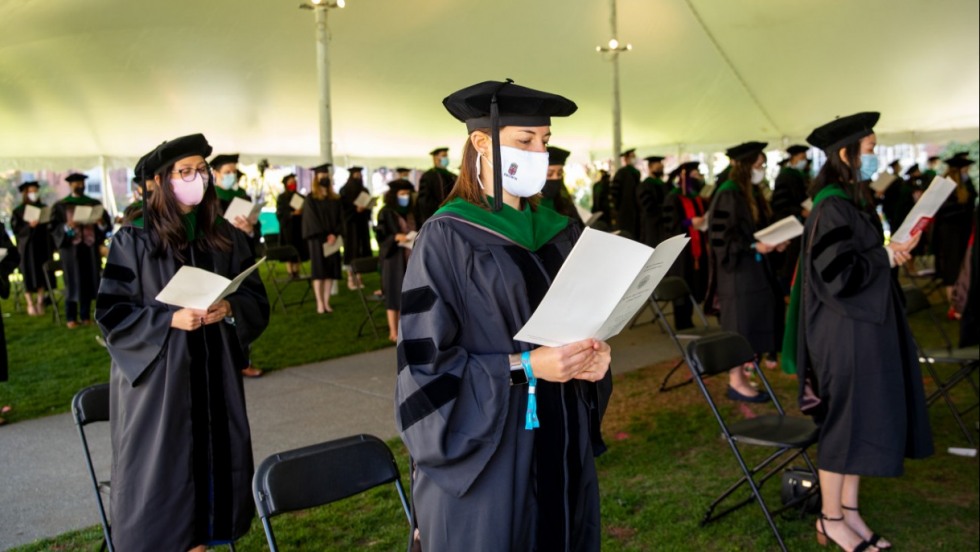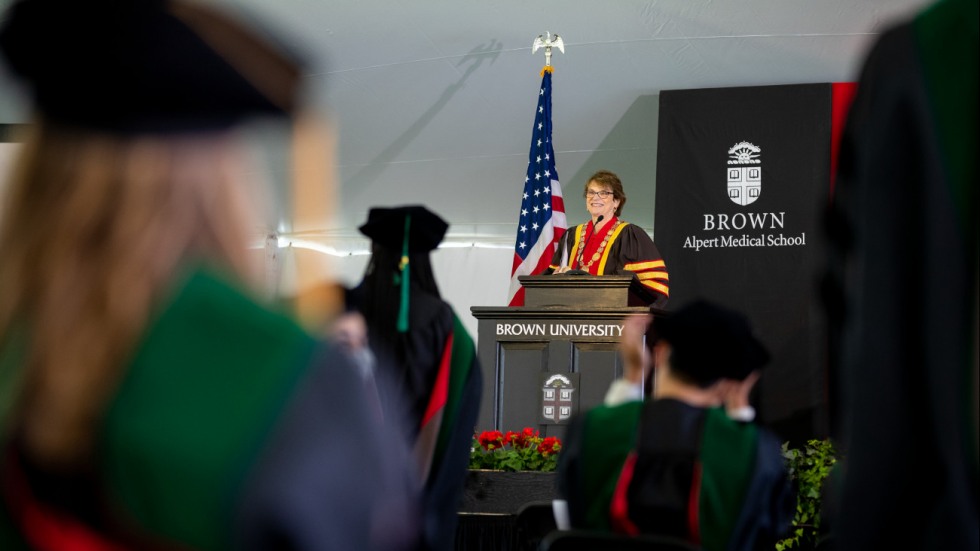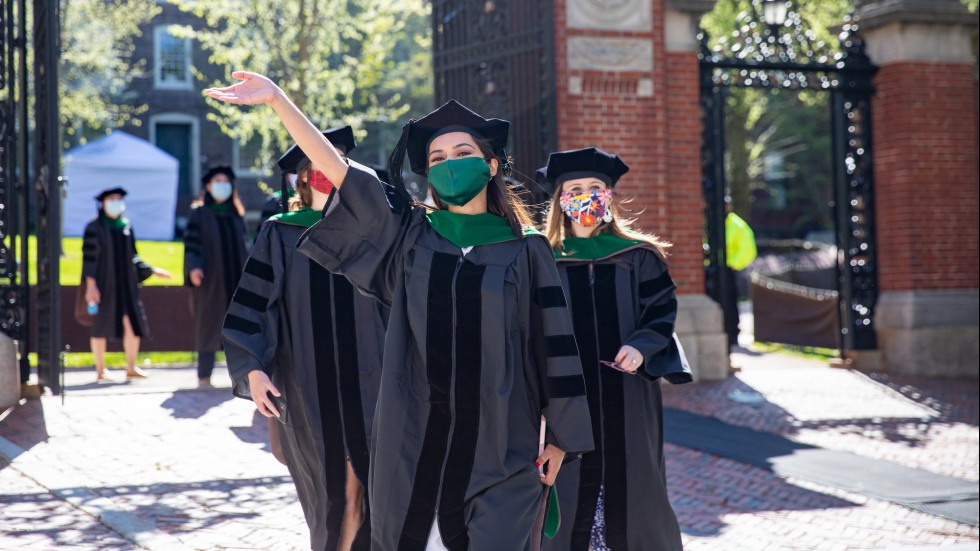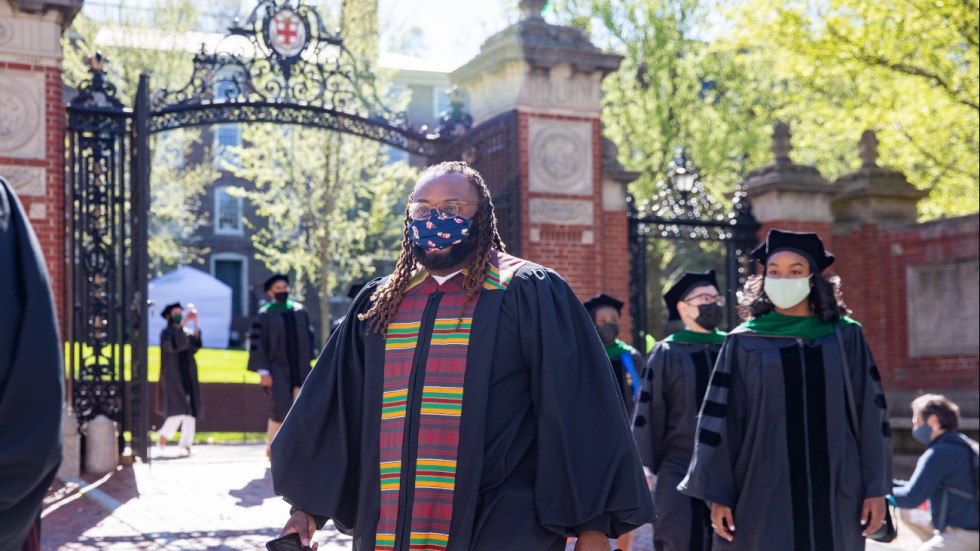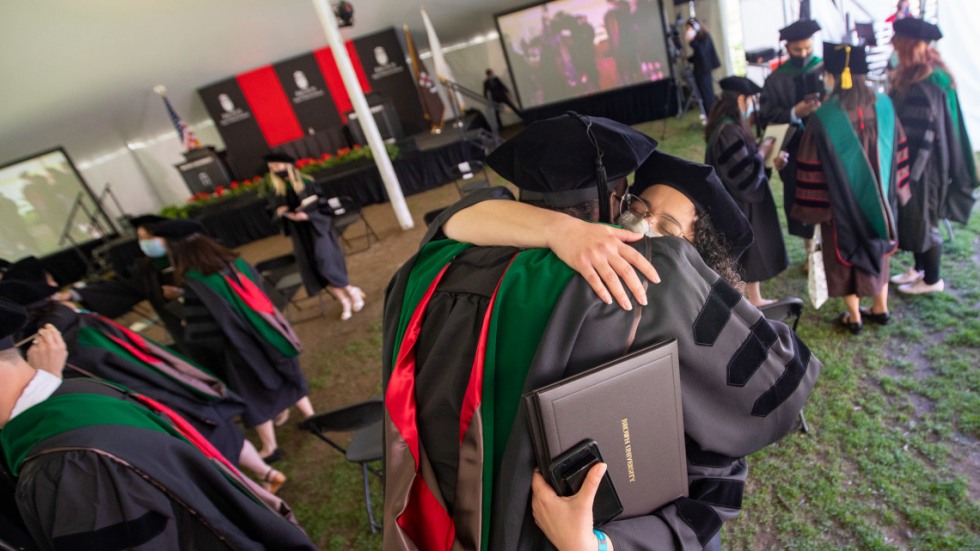PROVIDENCE, R.I. [Brown University] — The standard four years of medical school are famously intense and all-immersive — add to that a global pandemic and nationwide unrest provoked by racial injustice, and for many new physicians, the journey may have felt even more arduous than expected.
None of that stopped the 119 members of the Warren Alpert Medical School Class of 2021 from celebrating in joyous, jubilant solidarity — together, as a group.
Unlike many graduation celebrations this year, Brown’s medical school Commencement ceremony took place live and in-person, outdoors under a tent on Ruth J. Simmons Quadrangle, on Saturday, May 1. Graduates, almost all vaccinated against COVID-19 and all in masks — some in surgical masks typical of medical providers, others in patterned or decorated masks especially for the occasion — processed through the Van Wickle Gates, took the Physician’s Oath standing shoulder-to-shoulder and received their diplomas in hand.
Among the University leaders who joined to mark the momentous occasion was Brown President Christina H. Paxson, who in typical years is unable to attend the medical school ceremony because it’s held at the same time she’s addressing undergraduates at the College Ceremony. With this year’s events taking place across two days to allow for a de-densified campus, Paxson took the opportunity to acknowledge the challenges faced by Brown’s medical students this year, from interrupted clinical rotations to fractured academic focus due to anxiety, anger or fear over current events.
“Through all this, you have been extraordinary,” she said. “I’m so impressed by how you’ve navigated the past 14 months — you’ve continued to learn, supported friends, helped Rhode Island communities, advocated for what you needed, stood up for equity and justice. Everyone at the University is so proud of your accomplishments.”

